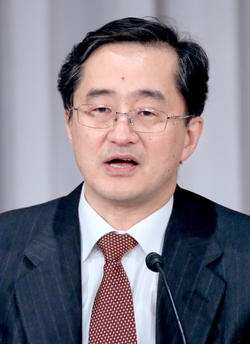As America retreats, Asia is the last hope for free trade

Nikkei Asian Review | 2 February 2017
As America retreats, Asia is the last hope for free trade
Fukunari Kimura, a professor at Keio University and an expert in Asian trade, indicated in a Nikkei interview that the Regional Comprehensive Economic Partnership, a proposed free trade agreement, should be a stronghold of free trade, since the Trans-Pacific Partnership has suffered a setback with the U.S. withdrawal. He also expects the Association of Southeast Asian Nations to exercise leadership in concluding negotiations for the RCEP, a huge regional economic agreement being negotiated among the 10 ASEAN governments and their six FTA partners — Australia, China, India, Japan, New Zealand and South Korea.
It is unlikely that the TPP will be revived under the Trump administration, but we don’t need to be so pessimistic. The TPP originated in the P4 agreement of four countries, Chile, Brunei, Singapore and New Zealand, and later expanded to involve 12 countries. It could still go into effect without the U.S. at first and could later be expanded, including with the possible rejoining of the U.S.
U.S. President Trump has formally decided to leave the Trans-Pacific Partnership. What do you think of this ?
However, with the U.S.’s breakaway, some member countries want to ease the strictness of rules laid down in the agreement, such as those on intellectual property. But tampering with the content of the agreement will induce an endless series of similar actions, undermining the TPP’s high level of liberalization, its most important feature. The content of the pact should basically be kept unchanged.
For Japan, the U.S. and some other member countries, the TPP was also meant to function as a "breakwater" against China’s influence. Will an economic bloc led by China expand in the future ?
For the present, I don’t think there is a need to worry so much. China has invested limited amounts in ASEAN countries, and it is very backward-looking about liberalization. China takes part in the negotiations for the RCEP, but it is not taking the lead in the talks.
What is the significance of the RCEP ?
ASEAN’s member countries have attracted manufacturers from developed countries under their free trade policy and have been growing in a global production network. Free trade has been the foundation for ASEAN’s growth. However, in recent years, protectionism has gained power in many countries that have taken the lead in free trade, including the U.S. and many European countries, and Asia, including ASEAN, is becoming the only region that can advocate free trade. Asia is the last ray of hope for free trade.
The RCEP represents a trade bloc that accounts for 50% of the world’s population and 30% of the world’s gross domestic product. Working out an agreement for the huge trade bloc will become an important message to the world that the banner of free trade will never be lowered.
What role should ASEAN play in bringing the RCEP negotiations to a successful conclusion ?
The negotiations are making little progress because there is a deep rift between countries, including Japan, that seek a high level of agreement content and countries like China and India that consider their domestic situation. Participants could first bring into effect an agreement with a low level of content and promise that they would renegotiate in several years in ways appropriate for the actual situation then. Anyway, careful negotiations will be needed. ASEAN should show stronger leadership to help conclude an agreement as soon as possible.





